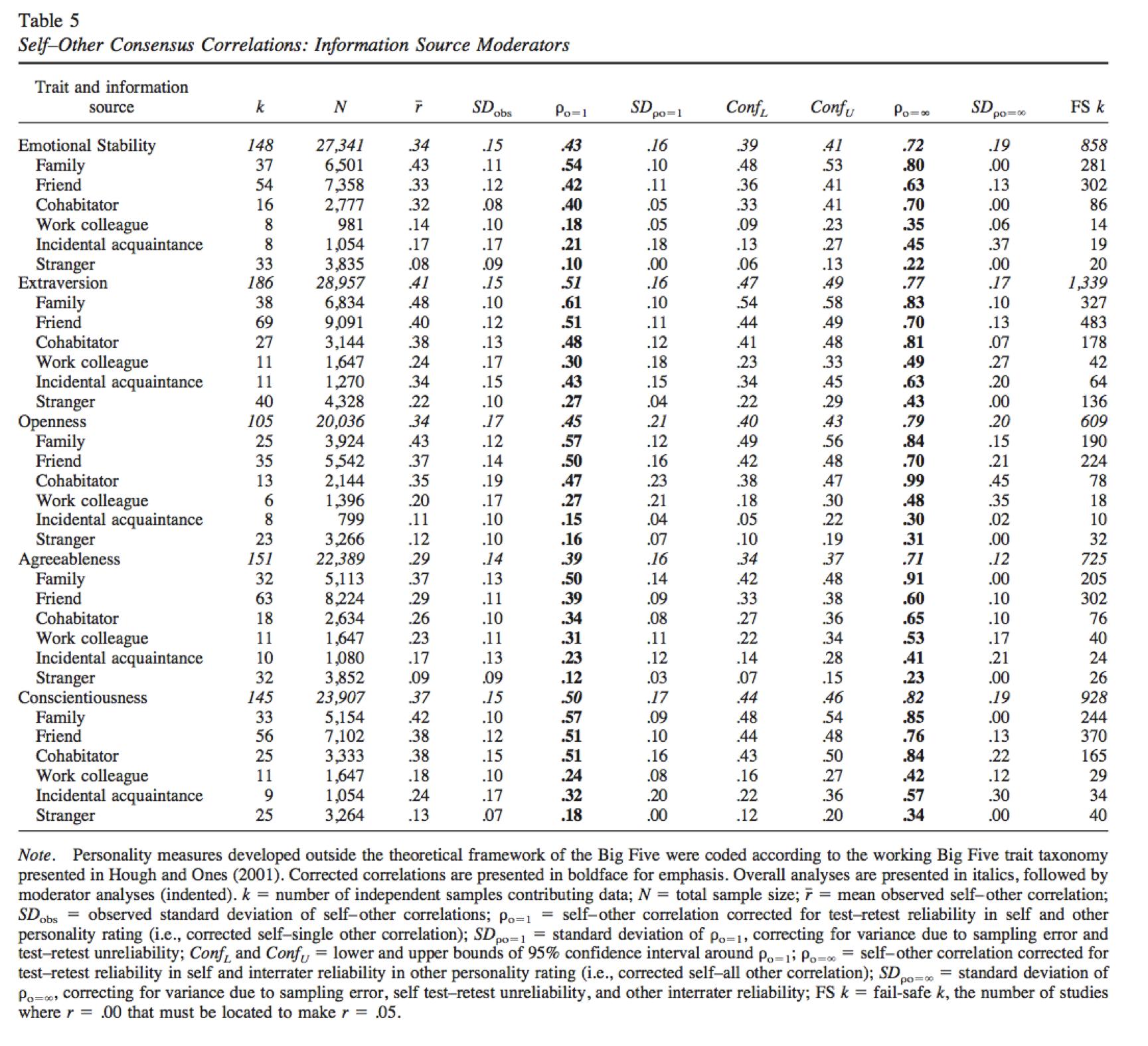It is well known that the correlation between personality measures obtained from self-ratings and ratings by others are imperfect. There are many different traits that could be rated (e.g., well-being, personality, performance, intelligence, self-esteem, etc.)
Is there a good reference that summarises the correlations between self and other ratings across a wide range of psychological constructs?
